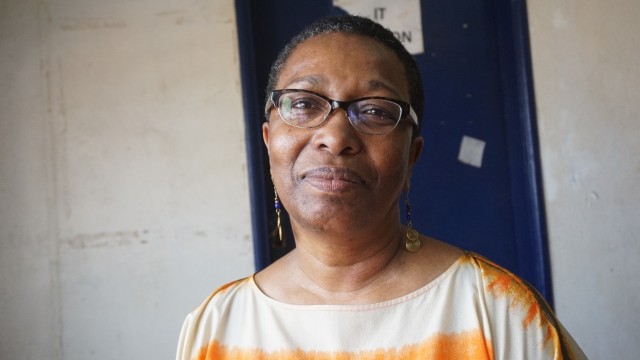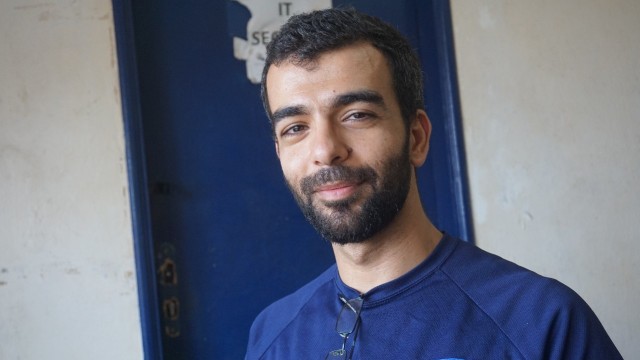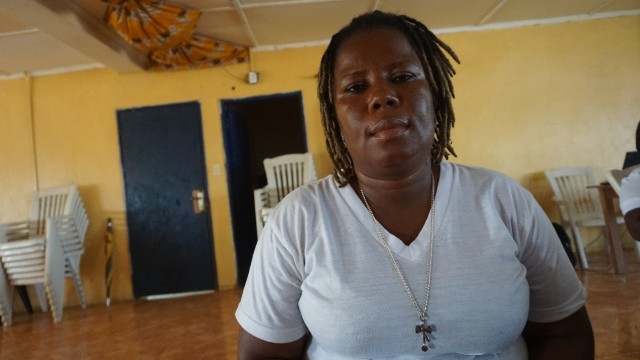MONROVIA, Montserrado – There are many cultural misrepresentations about mental illness in Liberia, many of which associate such illnesses with witchcraft and evil spirits.
For a country where most people were impacted by the 14-year civil crisis and the recent Ebola outbreak, that means many are subject to mental illnesses and may be at a risk of being marginalized and mistreated.
When these individuals interact with law enforcement officers, who are often responsible for maintaining public order, it is especially important that individuals with mental illnesses are recognized and supported in order to prevent injuries or the unnecessary loss of life.
It is a position that a former police officer from Canada, Dr. Mina Boazak, has been stressing. He is advocating for adequate mental health crisis intervention training for law enforcement officers in Liberia.
Boazak was recently part of a five-day crisis intervention team training for seventeen law enforcement officers — including five service users and eleven mental health clinicians — at the Police Training Academy in Paynesville.
The officers were drawn from the Liberia National Police, the Bureau of Immigration and Naturalization, and the Bureau of Corrections and Rehabilitation. The training is the third in a series sponsored by the Carter Center.
The mental health crisis intervention team model being implemented here is a law enforcement-based response strategy that involves the use of sworn officers with special mental health training to provide crisis intervention services as well as serve as liaisons to the formal mental health system.
During his one year as a police officer in Canada’s largest city, Boazak said he encountered many people with mental illness, an experience that led him to study medicine. He is now a psychiatry resident at the Emory University School of Medicine in Atlanta, Georgia of the United States of America.
Boazak said if law enforcement officers in the country are adequately trained in crisis intervention, it would be easier for them to recognize key symptoms of mental health illnesses, adding that it “allows the officers to ensure that persons with mental illnesses get access to treatment, which could improve their life in a timely manner.”
“Police officers are the first point of contact in crisis intervention prior to mental health services,” he said, as he called for a crisis intervention team in every county.
“Such a program enables law enforcement officers and other community members to understand the behaviors of people suffering from mental illness, epilepsy or substance use.â€
Pat Strode, program administrator of the crisis intervention team for the National Alliance on Mental Illness in the U.S., said she became involved with the program in 2006.
Strode said because of her work, she was first approached by the Carter Center in 2003 to come to Liberia and help train the Liberia National Police officers in the crisis intervention team which, according to her, is a viable program for the country.
For Strode, the issue of mental health is personal, as her daughter suffers from bipolar disorder. She said mental illness is not the fault of anyone, and it takes the collective, collaborated effort of the country’s leaders to ensure that all those in Liberia who have suffered years from the civil war get the care they need.
Strode added that because those suffering from mental illnesses have often lost their families, jobs, homes, and reasons for living, “it is up to us to make sure we give them back those things.â€

Pat Strode, Program Administrator, Crisis Intervention Team, National Alliance on Mental Illness. Photo: Zeze Ballah
“I am overwhelmed that Liberia is the first African country to have a CIT program,” she added.
Strode said the goal of the program is to initially train 30 percent of law enforcement officers about the resources that are available in the community meant to help people with mental illness.
Eventually, Strode said the Carter Center hopes that every law enforcement officer in Liberia is trained, which she warned would take years to accomplish. Even in her home state of Georgia in the U.S. where she has been involved with the program since 2004, there are still law enforcement agencies that have not received training.
While these services cost money, Strode hopes that the policymakers and politicians in Liberia will work to make sure that there are funds to allow everybody, including those with mental illnesses, access to such treatment, pointing out, “the most viable thing now is making sure that people at the community level are able to identify those with mental illness and link them with trained mental health clinicians in the communities for treatment.”
Strode said that there is a need for more hospital beds at the country’s only in-patient mental health facility, Edward S. Grant Mental Health Hospital.
Currently, the Grant facility, which has space for 80 beds, is only able to cater to 70 patients.
Tutu Evon Konneh, one of several participants, said prior to becoming a mental health clinician, her belief was that epilepsy was contagious.
According to Konneh, her niece had epilepsy and lived in the same room as her daughter. She severely mistreated her niece and separated all eating and drinking materials to prevent her daughter from getting epilepsy.
“I told my mother to relocate my niece in another room in the house or send her back to her mother, but my mother refused,” she explained. “I came across a book on epilepsy and read it, realizing that epilepsy is not contagious but rather genetic.”
She said during one of the crisis intervention team training, she learned a lot about epilepsy. After returning home from the CIT training, she felt guilty and apologized to the child.
Konneh said with the knowledge acquired from both the epilepsy book and CIT training, her niece is now eating and sharing all other materials with other people in her home.
For his part, Carter N. James, chief superintendent and head of departmental training for the National Police Training Academy, noted that though he was not a facilitator at the CIT training, he is aware of its importance, especially to police investigators in times of crisis intervention.

Carter N. James, chief superintendent and head of departmental training, National Police Training Academy. Photo: Zeze Ballah
According to James, during the period of crisis intervention, a person with mental illnesses may not give police investigators a clear picture of what happened.
He appreciated the Carter Center’s training, which according to him, is meant to build the capacity of law enforcement officers. He called on the participants to take serious what they acquired from the training.
Featured photo by Zeze Ballah





